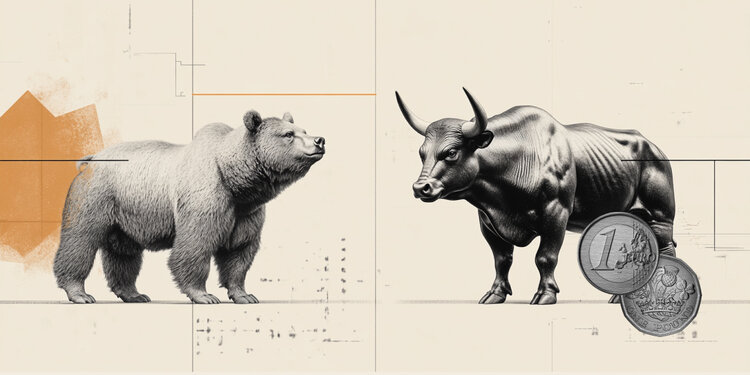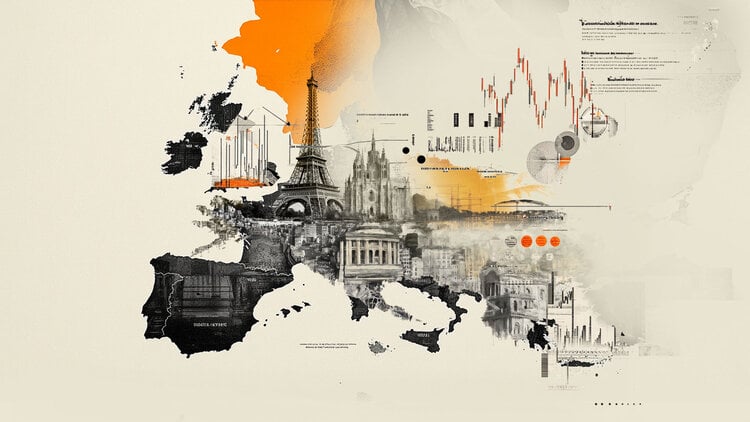If you ask her to introduce herself, she says this: «Hello, I’m Mia Canestrini, zoologist expert on wolves, author and TV and radio presenter». Many of her know her today, for her romantic work, for her expressive face and for that determined sweetness of hers that conquered the public. There are those who knew her by hearing her on the radio (today she leads the column Beauty and the Beasts for the 105 Friends program on Radio 105), those who have seen her on TV (she is co-host of the show The Provincial on Rai Due) and who has read one of his books.
And now, later The wolf girl (Piemme, 2019) and Keeper of Hearts (Mondadori Electa, 2022), another one comes out: In the Wolflands. Italian stories of a comeback (Piemme, 2023), 200 pages in which Mia tells of a journey between Irpinia, Tuscany, the Emilian Apennines, Valtellina and the Roman coast, in search of traces of this extraordinary and mysterious mammal: «It is a tale of wolves and nature that starts from my life and my experiences», says Mia Canestrini, «It is a personal invitation to reflect on what role we have carved out for ourselves on this Planet as humanity. The climate and biodiversity crises present us with a challenge: to accept being part of nature by recovering more sustainable lifestyles and consumption, or to continue along the narrative thread of the antithesis between nature and culture, which however is leading us towards catastrophe and extinction along with thousands of other species. We can also delude ourselves that we can live separately from the rest of living organisms, plants and animals, from which we have been depriving them of space and resources for decades, but if they die, we will die with them. The surprising and interesting thing is that today more than ever nature seems to want to show us that it wants us with it and tries with all its strength to re-incorporate us within its ecosystems, as soon as it has the opportunity”.
But why do we always talk about the big bad wolf?
«We always talk about the bad wolf because this is the image that was sewn on him during the Middle Ages, when Christianity needed to use the elements of nature, landscape and life in society for narrative purposes: there was need to create unity and encourage obedience within communities (the flocks), identifying the Church and its representatives (the pastors) as saviors and guarantors of a social and civil order, in the face of the chaos and danger represented by the non adhere to religious practices. The wolf, predator par excellence in Europe, lent itself well to embody Evil and the dangers of estrangement from the Church (in a figurative sense). We simply carry this millenary religious and cultural heritage with us».
So wolves do good things too!
“Absolutely yes! For example, wolves are very supportive of each other, if a member of the pack is injured, even seriously, the others do not abandon him, but try to guarantee his survival by protecting and feeding him”.
What is the greatest teaching that wolves have given you?
«They certainly taught me not to be afraid of changes and to adapt quickly. In this they are masters of the Animal Kingdom: opportunists, ecologically very plastic, they can live anywhere exploiting any type of habitat and resource. They learn by observing and exploring, they pass on what they have learned, they have an excellent memory and an extraordinary sense of direction».
Do wolves “recognise”? Do you have wolf “friends”? Of the wolves with whom she has been the most and with whom there is a particular relationship? It’s possible?
“Of course wolves recognize places, animals and people. I don’t have wolf “friends” because I have always treated wolves as wolves: I have not studied them inside a cage or an enclosure, forcing their proximity, but in nature where they run wild and free, they are rarely seen and avoid contact with the man. I lived a couple of different experiences retrieving two wolf cubs who for a very short time somehow recognized and identified me as a source of food and security, but then I avoided maintaining this kind of primordial bond and I deliberately detached, because that’s not what excites me about zoology.”
Where in Italy can you go to see wolves? Are there any wolf-watcher organizations?
«We are the center Men and Wolves of Entracque in the province of Cuneo, the center of Civitella Alfedena in the Abruzzo National Park, the center Alphaloup on the Maritime Alps (French side), all places where by paying a ticket you can observe wolves confined in more or less large enclosures and rich in vegetation. In northern Italy there is the association I’m not afraid of the wolf which organizes excursions and experiences in contact with nature».
If a person wants to help wolves, are there associations for their protection?
«WWF and the association I’m not afraid of the wolf these are the two realities that I would like to recommend in this regard and which carry out awareness-raising and information actions on the wolf and coexistence with this predator”.
It is said that you now live in Milan: a change of life?
«I actually live in the countryside in Tuscany and I occasionally go to Milan for work. In part I deal with scientific dissemination, but until recently I continued to work in the field coordinating the National Wolf Monitoring among the various ones. I don’t rule out putting boots back on in the future, but this type of job isn’t like a permanent job in an office: you work according to the projects that start and finish, the possibility of winning or not the public competition to be hired, and the desire to face a real new move for each project. At the moment, having the opportunity to talk about the natural sciences through mass media and publishing is very rewarding. I’m always travelling, I have a lot of freedom and I visit protected areas, oases and nature reserves that I’ve never even heard of before. But the greatest satisfaction is being able to tell and show them to millions of people, making them aware of the naturalistic value of our country. I have dedicated almost 20 years of my life to wolves, it seems like a lot to me but wolves have actually existed for hundreds of thousands of years: I think they can continue to exist even without me “chasing” them through valleys and mountains for another 20 years» .
If there were no wolves, what would have been his other passion?
«Dance, which I practiced for 20 years and which I completely abandoned when my studies and my thesis made the two irreconcilable. I’ve always sacrificed a lot for studying, but if I went back maybe I’d make slightly different choices. It is a form of physical and artistic expression that has profoundly marked the first 25 years of my life: all my memories of childhood and adolescence, up to the beginning of university, contain images of me in contact with nature or of me dance, that’s all.”
Mia Canestrini, «In the lands of the wolves»
Source: Vanity Fair
I’m Susan Karen, a professional writer and editor at World Stock Market. I specialize in Entertainment news, writing stories that keep readers informed on all the latest developments in the industry. With over five years of experience in creating engaging content and copywriting for various media outlets, I have grown to become an invaluable asset to any team.







